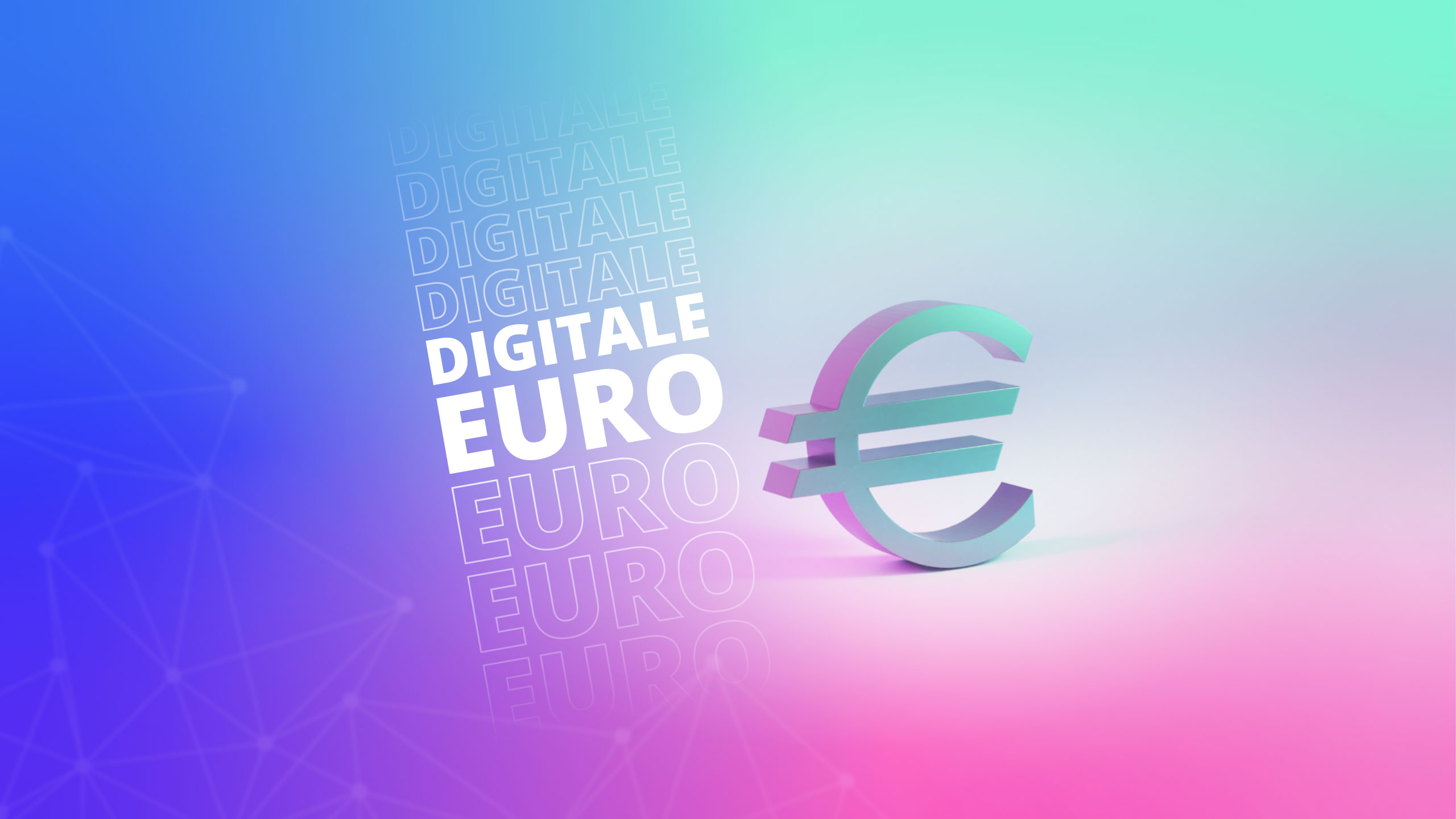by Hans Timmrman
In 2019, the initiative ‘Positive Money Europe’ was launched. It is a non-profit organization aimed at repairing the ‘broken’ financial system in Europe and making the economy fairer, more democratic, and more sustainable. In their view, the European Central Bank (ECB) does too little for the average citizen and thereby for our society as a whole. Their example was ‘Positive Money UK’, which similarly focused on the Bank of England with a successful campaign called ‘Quantitative Easing for the People’. In short, all the money printed by central banks, partly due to significant inflation, primarily benefits financial institutions and hardly benefits the population. They want to change that. The ECB should primarily serve EU citizens. In this pursuit, they see the Digital European currency (CBDC) as an innovative solution to this problem.
What is the CBDC?The CBDC is a digital euro issued by the European Central Bank (ECB), standing for Central Bank Digital Currency. The digital euro has the same value as physical cash – the ‘chartal’ euro – and is also backed by the ECB. The digital euro is intended to become a free and secure digital payment and savings tool. However, commercial banks do not see much benefit in it. After all, it would enable citizens to conduct our payment transactions suddenly without intermediary banks. With the digital euro, you can pay unlimitedly and for free throughout Europe, without a debit card or credit card, just using your phone to pay your rent, receive your salary, or do groceries. All through one app for all 350 million Europeans.
It is understandable that banks are currently doing everything to remain indispensable in the payment system. In a previous blog titled ‘Bitcoin is Social Technology’, I discussed the approval recently granted by the SEC for the launch of cryptocurrency-based ETFs: Exchange Traded Funds. The approval of the SEC and the industrialization of cryptocurrency represent a fundamental change in government, making digital money a viable replacement for fiat money. This makes large investors and banks very nervous. Micro-payments in digital currencies have the potential to be extremely cheap and fast, unlike micro-payments in fiat currency. Micro-payments have a revolutionary impact on transforming online transactions but do undermine the revenue model of banks.
The consequences of tokenization
The ECB states that bank-initiated money transfers will remain around €1 for the time being, but also suggests that ‘real’ micropayments only start at 1 cent or less. Tokenization is thus a real game-changer in our financial landscape. It offers better security, improved user experiences, cost savings, and opens the door to new business models. However, it poses a threat to the lucrative banking revenue model of fiat currency transactions, as the current labor- and energy-intensive banking systems can never offer this technically as cheaply and energy-efficiently.
Advocates of the digital euro argue that our society would become less dependent on banks for payments and savings. The digital euro competes with regular bank accounts and is a serious alternative to our current private bank deposits. However, this could make the European economy more stable. Economy-disrupting banking crises would be a thing of the past. Our society therefore benefits from digital public money. Because if the current excessive power of banks and investors diminishes, Europe will become fairer and more democratic according to ‘Positive Money Europe’.
European Parliament
Since last year, the European Parliament has been working on the law that will shape the future of digital public money in Europe. How and in what way can the digital euro be used, by whom, and what guarantees can be given to citizens? On April 22, the parliament will vote on the proposal. If the member states give the green light, residents of the eurozone are expected to be able to use the digital euro as early as 2026. However, banks argue that the digital euro should continue to use the existing banking infrastructure. In this way, they remain central to all payment transactions.
It is understandable that European banks are intensively lobbying to convince Members of the European Parliament of this necessity. The financial sector uses its position of power to demonstrate how banks have been a reliable and therefore indispensable partner of the ECB for the past twenty years. And they will necessarily have to play a role in this digital euro based on their ‘expertise’. The ECB appears receptive to these arguments: ‘Your suggestion to intensify contact with the banking sector regarding the design and distribution of the digital euro has been noted,’ wrote an ECB board member in July 2022 to the lobbying group of German banks.
Bank licenses versus financial freedom for citizens
Before the computer age, the use of cash was commonplace. Only for formal payments did you need the bank, where information was kept in paper files. Banks have traditionally been responsible for attracting savings, providing loans to individuals and businesses, handling payment transactions for their customers, and trading in foreign currency. But their internal digitization has led to increasing insight into their customers’ current balances, payments, and debts. Digital payment transactions subsequently provided banks with real-time information about their customers’ current payment and spending behavior. A tremendous position of power!
The question is whether the digital euro will indeed revolutionize our monetary system: in how we pay and bank. Online payment services would like to see this happen because there is currently no level playing field. Non-bank payment services and electronic money institutions do not have the same access to payment systems as banks. Within the current monetary system, only banks can definitively settle payments between banks with ‘central bank reserves’: the form of central bank money available only to institutions with a banking license. If we can do that soon via the app with the digital euro on our phone, the advantage of that banking license will largely disappear.
The future of digital money
It will be exciting to see what our Members of the European Parliament will do on April 22: leave the power with the banks or choose financial freedom for their citizens. The ECB does not want to disclose how much contact there has been with bank lobbyists in recent years. Agreements with ECB board members are published online. But meetings between lobbyists and lower-ranking staff are not public.
In recent years, banks have conducted a silent but effective lobbying campaign to quash potential competition. Banks not only advocate for a digital euro that uses their existing infrastructure but also propose limiting the maximum amount that someone can hold in digital euros to just 500 euros. Banking money will thus remain indispensable in our monetary system. As long as the discussion about this takes place outside the public debate, banks can win this battle for the future of our money. If the sector gets its way, the digital euro will likely become irrelevant. Or will the closed banking market landscape be broken open, and will citizens regain their old financial freedom?
The author, Hans Timmerman, is IT Trendwatcher and also blogger at Risk & Compliance Platform Europe.






